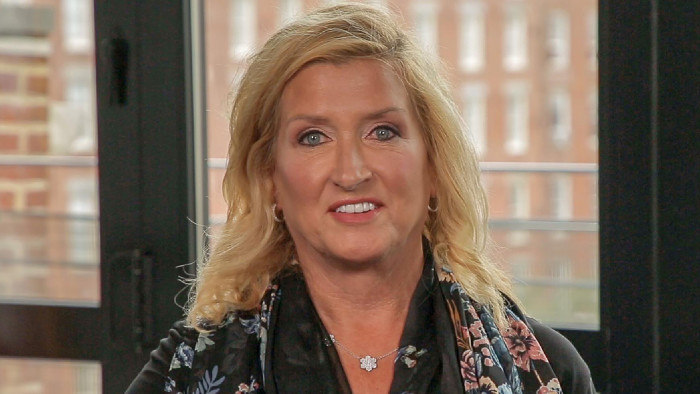Active management ensures ‘someone is driving the bus’

Simply sign up to the Financial services myFT Digest -- delivered directly to your inbox.
Barbara Delaney has built her business as a financial adviser firmly on the active side of the unsettled debate about active versus passive investment management.
In the defined contribution plans advised by her practice, StoneStreet Renaissance, roughly 75 per cent of assets held in long-term mutual funds are actively managed. The average proportion of DC assets in active investments by advisers in this year’s FT 401 list is about 70 per cent.
Ms Delaney prefers active management because she believes it gives advisers “more flexibility and better protection on downside because there’s someone driving that bus”, she says. This has been a tenet of much of her career as an adviser, which began in 1987. Among her clients, roughly 80 per cent of DC assets are held in workplace retirement plans called 401(k)s.
“There are some advisory firms that are very pro-passive and they only put passive menus together. That definitely is not us,” she says.
Ms Delaney points to active management in the bond market, which offers the ability to react to a meltdown. “To own the bond market just outright is so risky without knowing what you own and where your money is.”
Taking an active role seems to be a theme at Ms Delaney’s New York-based group of five advisers. Years ago, in what she calls “one of the biggest fundamental changes in our business model,” Ms Delaney began including financial wellness programmes in her business model.
The idea was to educate plan participants, to assist them in setting financial goals and to provide messaging that is unique to them. That includes financial planning services such as student loan guidance.
Large providers, such as Fidelity Investments, also now offer a more holistic financial planning service. “I don’t know why more advisers don’t see this, but [the large providers] are proactively going after our participants and our plans,” says Ms Delaney, who made the FT 401 list of leading US retirement advisers for the second time this year.
For StoneStreet Renaissance, this only increases the need to remain active when it comes to these services. “I think we, as a firm that likes to be proactive and manage our clients, are adding [more of] these services as a defensive measure.”
Another challenge facing Ms Delaney and her business is the shifting regulatory environment. She began her career in financial planning at EF Hutton, a stock brokerage firm, and then moved to consultancy Tribus Companies, where she started advising on DC plans in 1988.
In the 1980s, Ms Delaney says, while there were some rules to follow it was almost as if “we were making up the rules as we went”. Ms Delaney says that while she would rather have rules than no rules, the constant flow of regulatory proposals has made the job more demanding.
Advisers in the US are currently subject to the watchful gaze of not only the Labor Department, but also agencies such as the Securities and Exchange Commission, the Internal Revenue Service and the Financial Industry Regulatory Authority.
“We are in a much tighter legislative area,” Ms Delaney says. “We have much broader oversight than we’ve ever had before . . . we have so many government bodies that we can potentially be attacked by.”
Comments